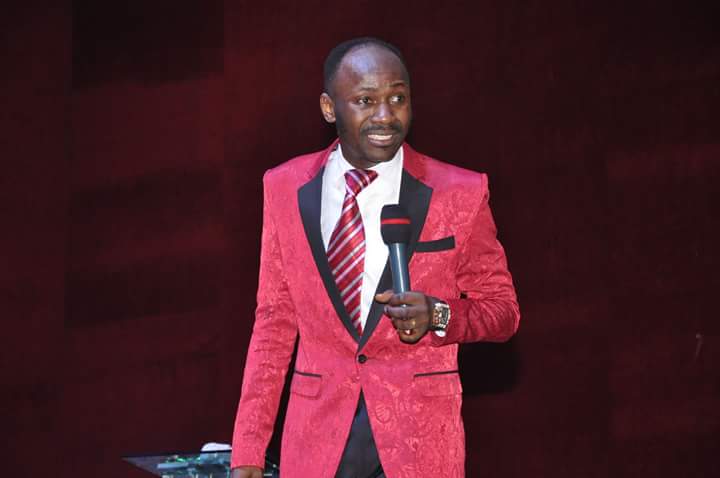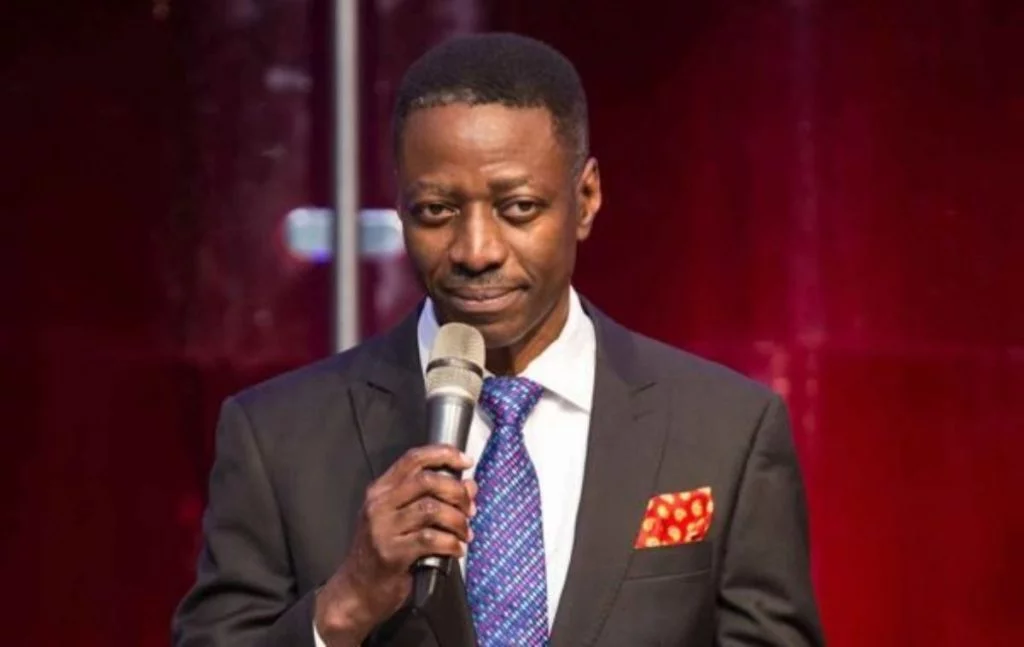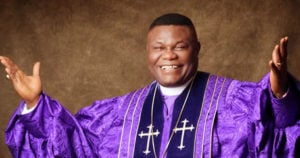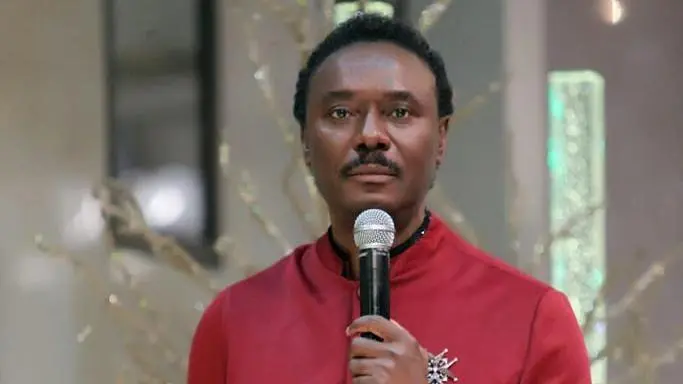

Nigeria is a country known for its strong religious beliefs, with Christianity being one of the most practiced faiths. Pastors play a significant role in shaping the spiritual and social lives of millions. Over time, some Nigerian pastors have not only made a name for themselves spiritually but have also built immense wealth through their ministries and other ventures.
This article takes a deep dive into the lives of the richest pastors in Nigeria, examining their wealth, sources of income, and how they have used their riches to influence the world. With religion playing such an important role in society, this list will offer insights into how these pastors have combined faith, leadership, and financial success to make a global impact.
To compile this list of the top 10 richest pastors in Nigeria, several factors were considered:
1. Net Worth: The estimated total wealth of each pastor, including cash, investments, and properties.
2. Assets: Luxury items such as private jets, high-end vehicles, and real estate holdings.
3. Ministry Size and Reach: The size of their congregations and the global impact of their ministries.
4. Business Ventures: Revenue generated from investments, books, speaking engagements, schools, and other enterprises.
5. Philanthropic Contributions: Their efforts to give back to society, which often highlights their wealth and influence.
This ranking highlights not just the financial success of these pastors but also the diverse ways they have built their wealth while fulfilling their spiritual missions.
The Top 10 Richest Pastors in Nigeria
1. Pastor David Oyedepo


Pastor David Oyedepo, the founder of Living Faith Church Worldwide (also known as Winners’ Chapel), is widely regarded as the richest pastor in Nigeria. With an estimated net worth running into hundreds of millions of dollars, he has built a ministry that spans across continents. Key sources of his wealth include: Faith Tabernacle, a massive church auditorium that can seat 50,000 people. -Ownership of Covenant University and Landmark University, both renowned private institutions in Nigeria. Several real estate investments and private jets used for ministry-related travel. Pastor Oyedepo’s influence extends beyond his wealth, as he continues to impact millions through education and spiritual guidance. Read more about Bishop David Oyedepo
2. Pastor Chris Oyakhilome


Founder of Christ Embassy, also known as LoveWorld Incorporated, Pastor Chris Oyakhilome is another highly influential and wealthy pastor in Nigeria. His ministry, which includes a vast network of churches and a global TV presence, has made him a household name. Sources of income include: – A thriving book and multimedia publishing business. – The LoveWorld TV network, which broadcasts to millions around the world. – International conferences and speaking engagements. Pastor Chris is known for his philanthropy, often providing scholarships and aid to underprivileged communities.
3. Pastor Enoch Adeboye


As the General Overseer of the Redeemed Christian Church of God (RCCG), Pastor Enoch Adeboye presides over one of the largest church networks in the world. His wealth is linked to the expansive reach of RCCG, which has thousands of branches globally. Notable sources of wealth include: – Tithes and offerings from millions of church members. – Investments in real estate and educational institutions. – Sales of his popular books and devotionals. Despite his wealth, Pastor Adeboye is known for his humble lifestyle and focus on spiritual growth.
4. Prophet T.B. Joshua (Posthumously)


The late Prophet T.B. Joshua, founder of The Synagogue, Church of All Nations (SCOAN), was known for his charismatic healing and prophetic ministry. Even after his passing, his ministry continues to thrive, with millions of followers worldwide. During his lifetime, his wealth came from: – The massive influx of international visitors to SCOAN in Lagos. – Emmanuel TV, his global broadcasting network. – Numerous charitable projects and philanthropic endeavors. Prophet T.B. Joshua’s legacy remains strong, cementing his place among the richest and most influential Nigerian pastors.
5. Pastor Matthew Ashimolowo


Pastor Matthew Ashimolowo, based in the UK, leads the Kingsway International Christian Centre (KICC). His financial success stems from both his ministry and personal ventures. Key wealth indicators include: – Book sales and teaching materials that have a global audience. – Real estate investments in Nigeria and abroad. – International speaking engagements and leadership seminars. Ashimolowo’s message of prosperity and faith has made him a sought-after voice in the Christian community.
6. Apostle Johnson Suleman


Apostle Johnson Suleman is the founder of Omega Fire Ministries International, a fast-growing church with a strong presence in Nigeria and abroad. His wealth comes from: – The rapid expansion of his ministry. – His active involvement in publishing and media. – Real estate and other business investments. Suleman is known for his generosity, often supporting charitable causes and community development projects.
7. Pastor Sam Adeyemi


As the leader of Daystar Christian Centre, Pastor Sam Adeyemi is a respected pastor and leadership coach. His focus on personal and professional development has set him apart. Sources of wealth include: – Books and seminars on leadership and success. – Daystar Christian Centre’s large congregation. – Media and consulting services. His calm and practical approach to ministry has earned him a loyal following.
8. Bishop Mike Okonkwo


The Presiding Bishop of The Redeemed Evangelical Mission (TREM), Bishop Mike Okonkwo, is another prominent figure in Nigerian Christianity. His wealth is linked to: – TREM’s extensive network of churches. – Real estate and other investments. – Public speaking engagements. Bishop Okonkwo is also known for his involvement in promoting social justice and community empowerment.
9. Rev. Chris Okotie


Rev. Chris Okotie, a former pop artist turned pastor, leads the Household of God Church. Key sources of income: – His successful transition from music to ministry. – Book sales and media productions. – His brief involvement in politics, which raised his public profile. Rev. Okotie remains a unique figure in Nigeria’s religious and entertainment landscape.
10. Pastor Lazarus Muoka


Founder of The Lord’s Chosen Charismatic Revival Movement, Pastor Lazarus Muoka is widely known for his evangelical efforts. His wealth stems from: – The widespread growth of his ministry. – Sales of books and ministry-related materials. – Real estate investments. Muoka’s passionate preaching style continues to attract followers from all walks of life.
Breakdown of the key income streams:
The wealth of Nigeria’s richest pastors is derived from diverse sources, demonstrating their ability to combine spiritual leadership with entrepreneurial skill. Here is a breakdown of the key income streams:
1. Church Offerings and Tithes
The primary source of income for most pastors is the generous contributions of their congregations. With millions of followers, these churches generate substantial revenue during weekly services, special programs, and conventions.
2. Book Sales and Multimedia Content
Many of these pastors are prolific authors, with their books focusing on faith, prosperity, and leadership. Titles by pastors like David Oyedepo and Chris Oyakhilome are bestsellers. In addition, their TV and radio programs attract global audiences, creating another significant revenue stream.
3. Educational Institutions
Several pastors own universities, colleges, and schools, which are among the top-rated private institutions in Nigeria. Examples include Covenant University (David Oyedepo) and Bowen University (affiliated with RCCG).
4. Real Estate Investments
Wealthy pastors often invest in luxury properties, church buildings, and real estate ventures. These investments not only boost their financial portfolios but also provide venues for their expanding ministries.
5. Business Ventures
From owning TV stations to operating publishing houses and event centers, Nigerian pastors are involved in numerous business ventures. These activities diversify their income sources and help sustain their ministries.
6. Philanthropy and Grants
While philanthropy is often viewed as a charitable act, it also enhances their public image, drawing more followers and increasing their influence. Some pastors have received international grants for their humanitarian efforts. By leveraging these various income streams, Nigeria’s richest pastors have built wealth while advancing their spiritual missions and reaching people worldwide.
Controversies and Public Opinions
The immense wealth of Nigerian pastors has sparked widespread debates and mixed reactions among the public. While many admire their success and the positive impact of their ministries, others question the accumulation of such riches in the context of religious leadership.
Common Controversies
1. Accountability and Transparency
Critics argue that some pastors lack transparency in how church funds are managed. Questions are often raised about the balance between personal wealth and ministry funding.
2. Lavish Lifestyles
The ownership of private jets, luxury cars, and opulent homes by some pastors has been seen as excessive, especially in a country with significant poverty. This has fueled debates on whether religious leaders should live modestly.
3. Tax Exemptions
Churches in Nigeria are generally tax-exempt, which has led to criticism from those who believe these wealthy ministries should contribute more to national revenue.
4. Focus on Prosperity Preaching
Some pastors are accused of prioritizing messages about wealth and prosperity over core Christian teachings, which has drawn skepticism from certain quarters.
Public Support
Despite the controversies, many followers view these pastors as role models and appreciate their ability to use wealth for evangelism and community development. Their philanthropic activities, such as providing scholarships, building schools, and offering free medical services, are often highlighted as positive contributions to society.
The wealth of these pastors remains a polarizing topic, reflecting both admiration for their success and scrutiny of their methods.
Impact of Wealth on Their Ministries
The wealth accumulated by Nigeria’s richest pastors has significantly shaped the growth and influence of their ministries, both locally and globally. Here are some key ways their wealth has had an impact:
1. Expansion of Ministries
Wealth has enabled pastors to establish large church networks and branches worldwide. For instance, the Redeemed Christian Church of God (RCCG) and Christ Embassy have thousands of branches across continents, spreading their messages far and wide.
2. Access to Modern Technology
Financial resources allow these pastors to invest in state-of-the-art facilities for live broadcasts, social media outreach, and multimedia production. This ensures that their sermons and teachings reach millions of people through TV, radio, and online platforms.
3. Building Mega Structures
Many pastors have used their wealth to construct some of the largest church auditoriums in the world, such as Faith Tabernacle (David Oyedepo) and Redemption Camp (Enoch Adeboye). These structures serve as centers for worship and attract thousands of worshippers during major events.
4. Philanthropy and Social Impact
Their financial power enables them to fund charitable projects, including free education programs, healthcare services, and disaster relief efforts. These initiatives often improve their public image and foster goodwill among communities.
5. Training and Empowerment Programs
Many pastors organize leadership seminars, workshops, and training programs that empower young entrepreneurs, leaders, and professionals. This creates a ripple effect, contributing to economic growth and societal development. While their wealth has been instrumental in advancing their ministries, it has also placed a greater responsibility on them to lead by example and ensure that their riches are used for the betterment of society and the propagation of their faith.
Conclusion
The top 10 richest pastors in Nigeria have demonstrated that faith and financial success can go hand in hand. Through their ministries, they have reached millions, built thriving enterprises, and left a lasting impact on their communities. However, their immense wealth has also sparked debates about the role of money in religion and the need for greater transparency and accountability. While some view their financial success as a blessing that enables them to spread the gospel and support charitable causes, others see it as a deviation from the humility often associated with religious leadership. Ultimately, these pastors serve as examples of how spiritual influence, entrepreneurial acumen, and a commitment to societal development can intersect. As they continue to grow their ministries and extend their outreach, the spotlight will remain on how they balance their wealth with their spiritual responsibilities.